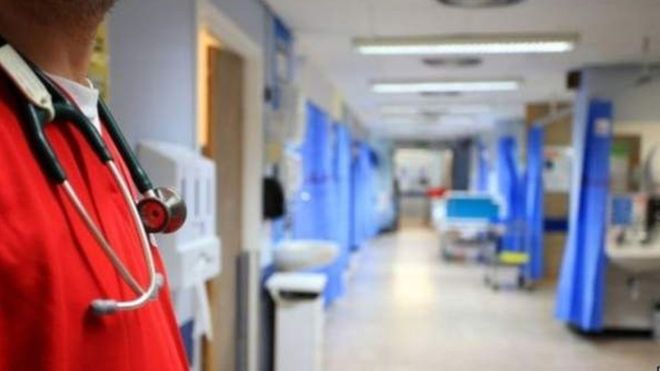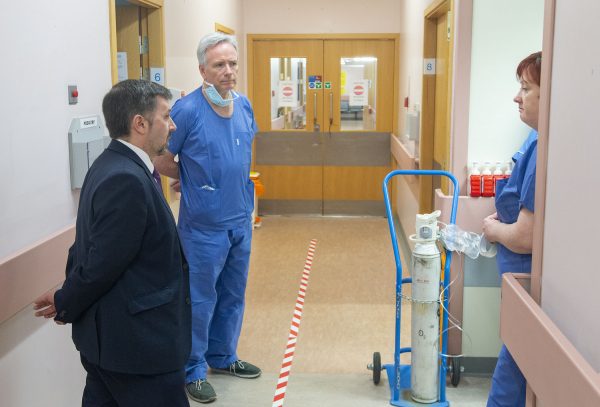 GENERAL visiting will end at all hospitals, including Altnagelvin hospital, with very limited exceptions.
GENERAL visiting will end at all hospitals, including Altnagelvin hospital, with very limited exceptions.
The limited visits is the next phase of health service plans to deal with the Covid-19 surge.
The Department of Health set out its plans on Thursday as the death toll from Coronavirus in the North of Ireland reached double figures.
They include prioritising patient care, urgently discharging all medically fit patients and reconfiguring hospital services.
There have been 32 new confirmed cases of coronavirus and three more deaths.
It brings the total in the North of Ireland to 241 confirmed cases and 10 deaths.
The plans follow comments from Health Minister Robin Swann on Thursday that he does not “know what the health service will look like in a week’s time”.
On Wednesday, NI’s chief medical officer briefed Stormont that there are many thousands of cases in Northern Ireland and that the virus is more widespread than statistics indicate.
As a result of the outbreak, NHS resources have been redirected to treating infected patients with many procedures and appointments cancelled.
The Royal College of Surgeons is now advising members that due to Covid-19 some surgeries will be treated differently to protect patients and staff, with some patients possibly being treated with antibiotics rather than surgery.
On Thursday, the Department of Health’s Permanent Secretary Richard Pengelly outlined the health service surge plans in a letter to health trust chief executives.
The letter includes more measures to concentrate resources on essential patient care as well as for all spare capacity in residential, nursing and domiciliary care to be used.
Mr Pengelly said it was recognised that, in some cases, this could mean other services are temporarily reduced, as the focus is on providing essential services and helping those at risk access the best treatment.
“It is therefore suggested that clinicians should begin to categorise patients into priority groups,” he added.

Health Minister Robin Swann visits COVID-19 pod at Altnagelvin Hospital on Wednesday
“Urgent and emergency treatments should continue to be given top priority.”
The letter also addressed the provision of personal protection equipment (PPE), the supply of ventilators and other respiratory equipment, testing, and staff accommodation.
It states that staff affected by the 14-day household isolation policy should be offered – on an entirely voluntary basis – the alternative option of staying in hotel accommodation while they continue to work.
This should be organised locally by the trusts, it added.
Earlier, Health Minister Robin Swann told Stormont’s health committee that he could not give a commitment on when the health service would return to normal.
He explained that surge plans were in place but that the health service was down to a number of procedures and elective surgeries that he would never have envisaged as health minister.
“To give any sort of commitment now that we will return 100% to where we were two months ago – I can’t give it. I won’t give it, because I can’t stand over it,” Mr Swann added.
Tags:




